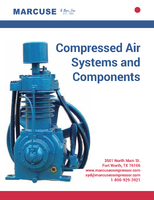Printed Board Standard provides design basics.
Share:
Press Release Summary:
At 170 pages, IPC-2221B, Generic Standard on Printed Board Design, provides basis for design of all types of printed boards and addresses such areas as testing, via protection, test coupon designs, and surface finishes. IPC technical project manager John Perry said included information can "help designers make decisions between surface finish alternatives" and added that descriptive data is augmented by table to facilitate comparison of traits between various surface finishes.
Original Press Release:
IPC-2221B Tackles New Technologies, Techniques
BANNOCKBURN, Ill., USA –Â As chip sizes shrink and system features and functions expand, board designers are increasingly challenged with recalling all the parameters and guidelines they need for every aspect of board layout. The newly revised, 170-page, IPC-2221B, Generic Standard on Printed Board Design, provides a basis for the design of all types of printed boards and addresses areas as diverse as testing, via protection, test coupon designs and surface finishes.
“We provided a lot of information that can help designers make decisions between surface finish alternatives,” said John Perry, IPC technical project manager. Perry added that descriptive data within the standard is augmented by a table that makes it easier to quickly compare the traits of various surface finishes.
Industry’s focus on quality and reliability is addressed with an upgraded section on electrical requirement testing. “There are several pages of new material on electrical testing that explain the various types of tests available, including continuity, Hi-Pot and impedence,” Perry said. “Ultimately, the message is that no one test meets all requirements. Designers are encouraged to use two or three to ensure that they’re meeting user requirements.”
IPC-2221B also provides details on via protection, which is becoming more important as the number of via holes on a typical board increases. Another significant addition to the revised standard is the new Appendix A that details a new set of test coupon designs that are utilized for lot acceptance and periodic conformance testing in accordance with performance specifications including IPC-6012C, Qualification and Performance Specification for Rigid Printed Boards and IPC-6013B, Qualification and Performance Specification for Flexible Printed Boards.
For example, the new AB/R coupon used for plated hole/via evaluation and thermal stress testing has been designed to accommodate blind, buried and mircovia structures used in today’s printed boards. The AB/R coupon and the other eight designs within Appendix A represent a significant improvement over the legacy IPC-2221 coupon designs that date back more than 23 years which are now contained in Appendix B for existing designs.
The completion of IPC-2221B marks the finish of the three main documents for printed board design. “We’ve had a nice trifecta in the last few years,” Perry said. “IPC-2222A, Sectional Design Standard for Rigid Organic Printed Boards came out two years ago, and IPC-2223C, Sectional Design Standard for Flexible Printed Boards, came out last year. This latest release completes an update of the most widely used standards in the IPC-2220 design series.”
IPC-2221B, Generic Standard on Printed Board Design is available for purchase by IPC members for $50. The industry price is $100. For more information or to purchase the standard, visit http://www.ipc.org/2221.
About IPC
IPC (www.IPC.org) is a global industry association based in Bannockburn, Ill., dedicated to the competitive excellence and financial success of its 3,300 member companies which represent all facets of the electronics industry, including design, printed board manufacturing, electronics assembly and test. As a member-driven organization and leading source for industry standards, training, market research and public policy advocacy, IPC supports programs to meet the needs of an estimated $2.02 trillion global electronics industry. IPC maintains additional offices in Taos, N.M.; Arlington, Va.; Stockholm, Sweden; Moscow, Russia; Bangalore, India; Bangkok, Thailand; and Shanghai, Shenzhen and Beijing, China.




